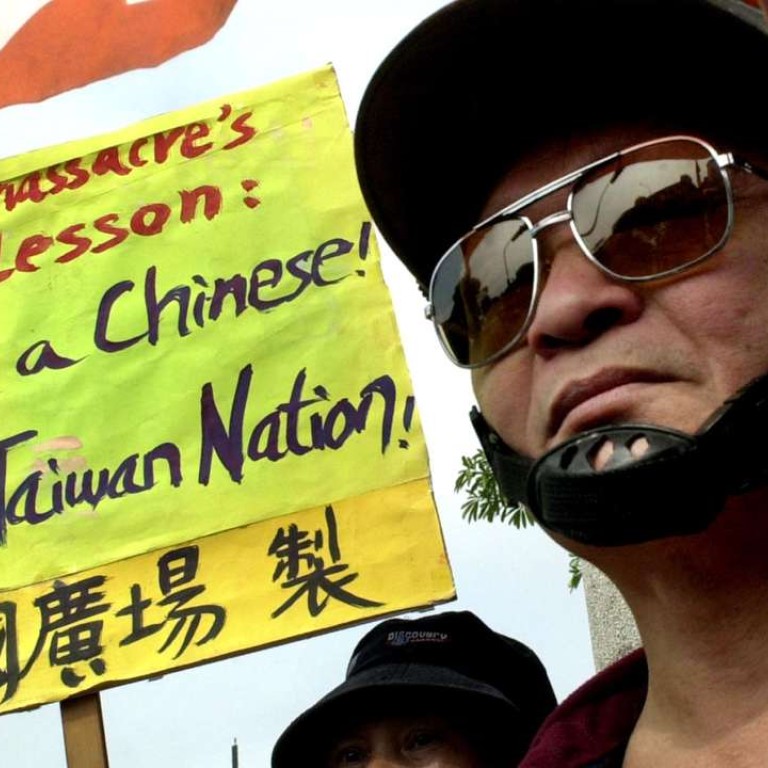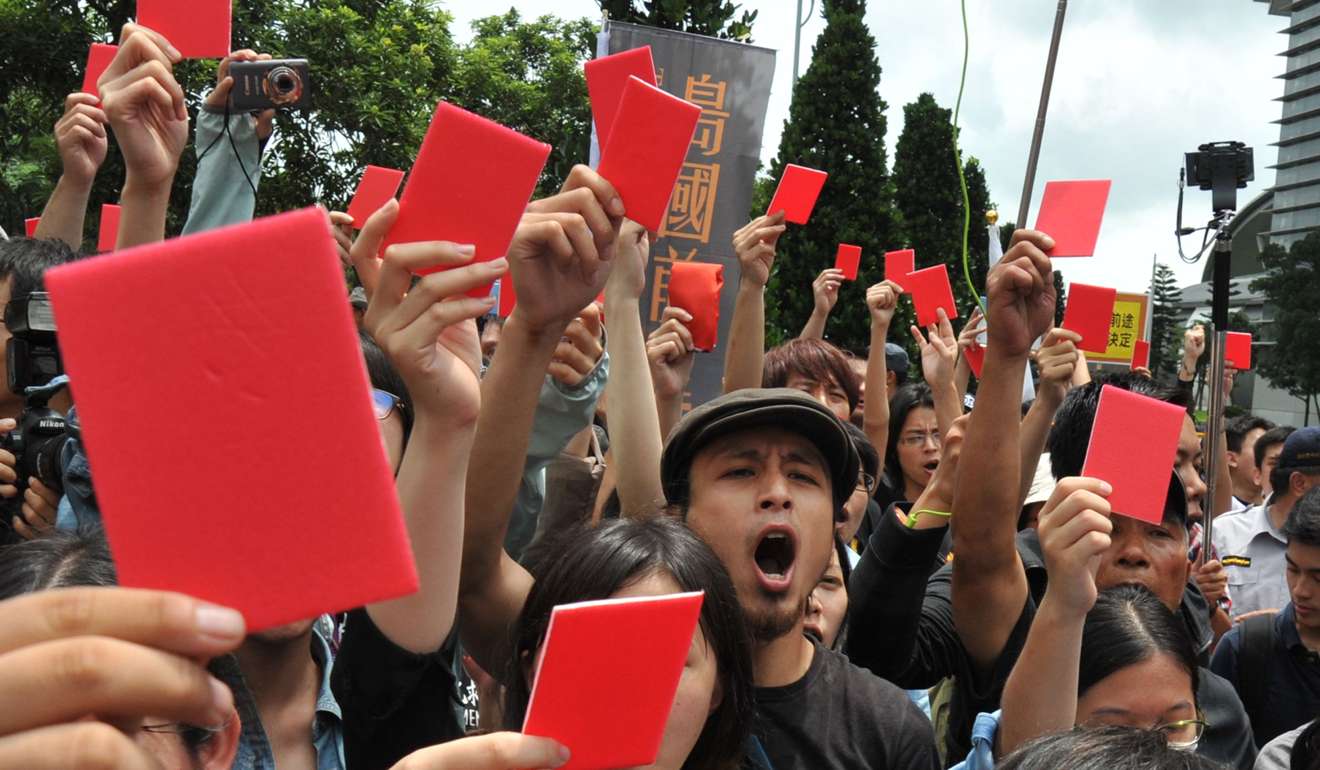
Beijing calls landmark Taiwan protests part of China’s liberation struggle
‘228 incident’ in 1947 was a ‘just action’ against dictatorship that has been hijacked by independence forces for ulterior motives, says Beijing’s Taiwan Affairs Office
Taiwanese authorities have remained mum over remarks by an official from the Chinese mainland that the pro-independence forces on the island had tried to hijack the commemoration of a 1947 massacre to promote their own agenda.
It has also appeared lukewarm over Beijing’s plan to hold a series of activities next week to commemorate the 70th anniversary of the “228 Incident,” as it is known in Taiwan.
An Fengshan, spokesman for China’s Taiwan Affairs Office, said the “228 Incident” was a “just action” by people in Taiwan against dictatorship and to fight for their basic rights.
“It is part of the Chinese people’s liberation struggle,” An said yesterday. “For a long time, this incident has been used by certain Taiwan independence forces for ulterior motives,” he added.
In past elections, the DPP has often invoked the impression of “mainlanders taking advantage of Taiwanese natives,” citing the 228 incident as proof.

At least 28,000 people, mostly local natives, were killed during the suppression of riots that started on February 28, 1947 – two years before the Nationalist forces on the mainland were defeated by the Chinese Communists and retreated to the island where it set up an interim government.
Hsueh Hua-yuan, chairman of the 228 Memorial Foundation, however, criticised the mainland for trying to use the Taiwanese incident as a political tool.
“Beijing should promote freedom and democracy at home instead,” he said.
As for the claim that pro-independence forces had tried to make political gains from the incident, Hsueh said very few Chinese Communist Party members took part in the incident.
“They didn’t play a crucial role,” Hsueh said, adding the event marked the Taiwanese struggle for autonomy and resistance to an oppressive regime.
Sun Yang-ming, vice-president of the KMT-affiliated National Policy Foundation, said the Communist’s role was before the uprising, and the Taiwanese activist Hsieh Hsueh-hung rallied dissidents, including intellectuals and communists, to resist the local KMT regime of Chen Yi.
He said that many people were fed up by the high-handed policies of Chen Yi, which allowed the Chinese Communist Party to absorb a number of Taiwanese communist members.

